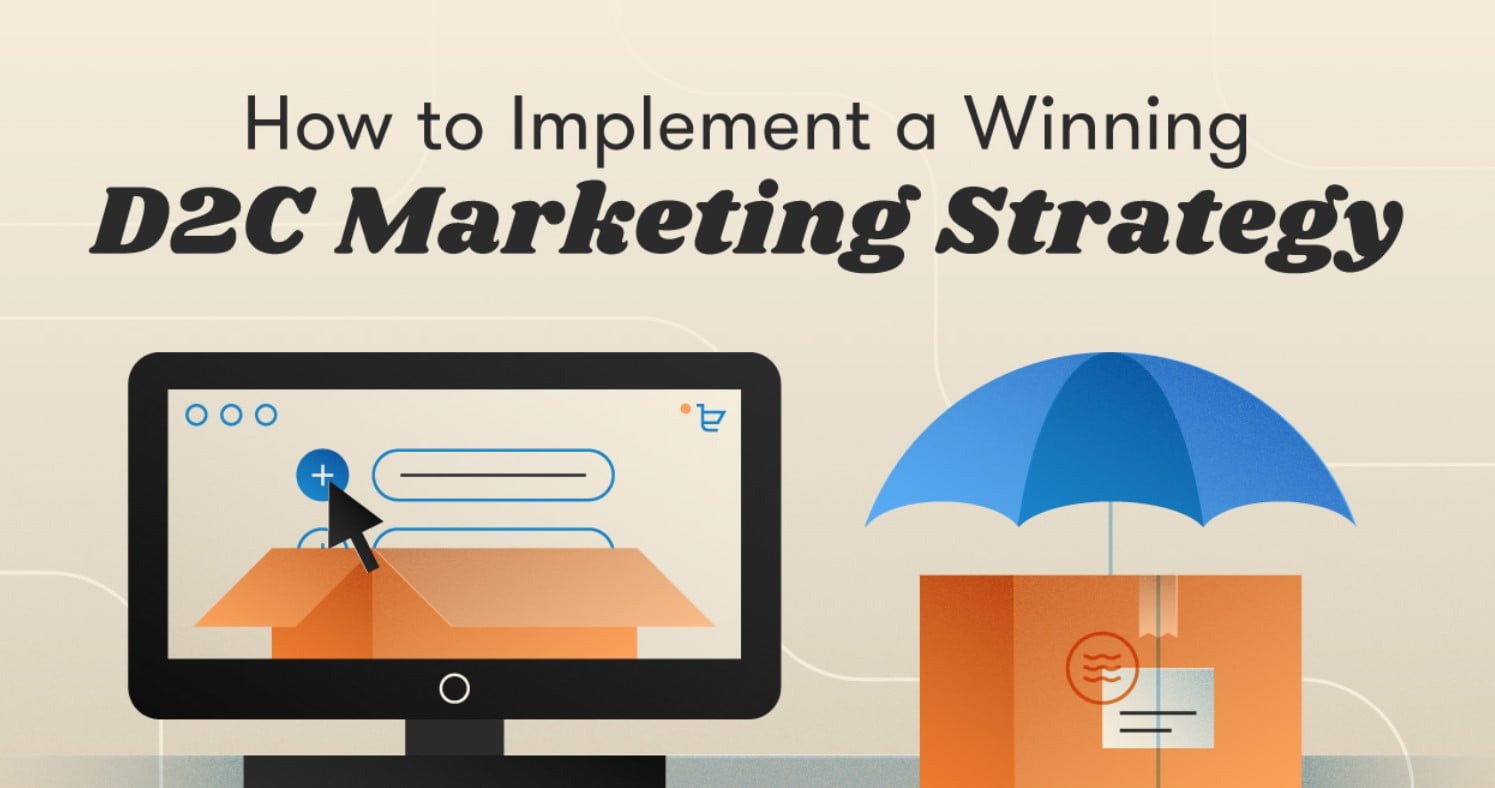Direct to consumer marketing, often referred to as DTC or D2C, is shifting brand-customer relationships and the commerce landscape at large. Direct to consumer brands deliver their products straight to customers, cutting out the need for any intermediaries (like retailers or wholesalers) along the way. Thanks to its explosion in popularity, the direct to consumer model is causing budding entrepreneurs and even established companies to rethink the way they do business, and rightfully so.
Direct to consumer companies, in removing intermediaries between themselves and consumers, tend to be e-commerce-first brands. This bodes well, as 96% of Americans shop online and enjoy the convenience of digital purchasing, whether from a phone or computer. D2C companies need only set up shop with an e-commerce platform, allowing potential customers to make purchases directly from their websites.
Q1 hedge fund letters, conference, scoops etc
In the direct to consumer marketing model, companies streamline the entire shopping experience by selling their goods online to customers, taking ownership of the entire process from creation of the product, to marketing, to distribution and customer service. The benefits of this for a growing business include building better relationships with customers, being able to improve on product offerings more quickly, getting goods faster to market, and cost-savings from removing intermediaries from the sales process. These perks extend to consumers as well, especially as shopping preferences change across generations.
Brands that use direct to consumer marketing make particular headway with millennials, the population segment on course to become America’s largest generation. Since millennials are projected to spend $1.4 trillion on shopping by 2021, companies across all industries should prioritize employing strategies that keep the young generation coming back for more. The generation craves more authentic experiences with brands as much as they care about affordability, socially responsible companies, and brands that deliver an extraordinary customer experience. In fact, 74% of millennials wouldn’t hesitate to switch to a new brand after a negative experience with a retailer. By embracing a direct to consumer sales model, companies can meet the demands of the generation with such enormous purchasing power.
In traditional B2C business models, important information too often gets lost along the way between manufacturers and consumers. Middlemen like retailers and outside agencies handle the customer service, marketing strategy, and the actual sale of products, taking control away from suppliers over the majority of the business process. Direct to consumer brands, on the other hand, have ownership of the entire process and even end up saving money in the long-run. New businesses that are trying to stay on top of their expenses should consider the direct to consumer route as a cost-effective way to make connections with consumers.
One of the most striking D2C examples comes from mattress brand Casper, which forever changed the mattress industry by pioneering the direct-delivery mattress in a box experience, saving customers from the stress, confusion, and effort of in-store mattress shopping. Casper upended a $14 billion industry by selling mattresses online at a reasonable price point with a highly desirable free trial period. Offering free trials common among direct to consumer companies, as they allow new brands to build trust with customers — especially in online purchases. Casper, as a digital native brand, took it to the next level by opening brick-and-mortar locations so that consumers could get the highly sought after touch and feel experience with their mattresses before purchasing.
Good Reasons to Go D2C
An Improved Customer Relationship.
Direct to consumer brands have deeper relationships with their customer base and are able to quickly implement changes to products and services offered based on customer feedback. Crucial customer data that would otherwise be lost to external retailers is instead retained, allowing D2C brands to meet customer demands better and faster. For customers that are increasingly demanding transparency from companies and care about knowing where their products come from, the direct to consumer marketing model can make brands stand out positively in the eyes of conscious consumers.
More Control, Start to Finish.
Traditional B2C retail models force suppliers to give up control of everything that happens with their products after manufacture. At the moment the product gets to retailers, suppliers lose control of how it’s sold and how their brand reputation will fare as a result of third-parties. The direct to consumer marketing model allows suppliers to own their entire brand experience, end-to-end. Brands using D2C can give consumers a more streamlined experience, ultimately increasing customer engagement and retention.
Making the Best Product the Fastest.
Creating an innovative, more personalized product is easier for direct to consumer brands that carefully leverage customer data. D2C brands can test new versions of their product, get it out to consumers quickly without waiting for or relying on any middlemen to play their part, and ultimately create the best products that meet customer demands all the while.
Keeping Costs Low on Both Ends.
By retaining control of the end-to-end process, direct to consumer companies retain money that would otherwise be lost to intermediaries. Brands using D2C also save their customers money because they can keep prices for their offerings low. To add even more value, direct to consumer companies often offer free trials to consumers, further lowering risk to customers and improving the customer experience.
Ultimately, the direct to consumer marketing model is reshaping commerce for the better and benefitting both companies and consumers. For the best ways to put direct to consumer marketing strategies to work in your own business, check out the infographic from Fundera for lessons from D2C brands that are killing it in the space.
Infographic source: Fundera






